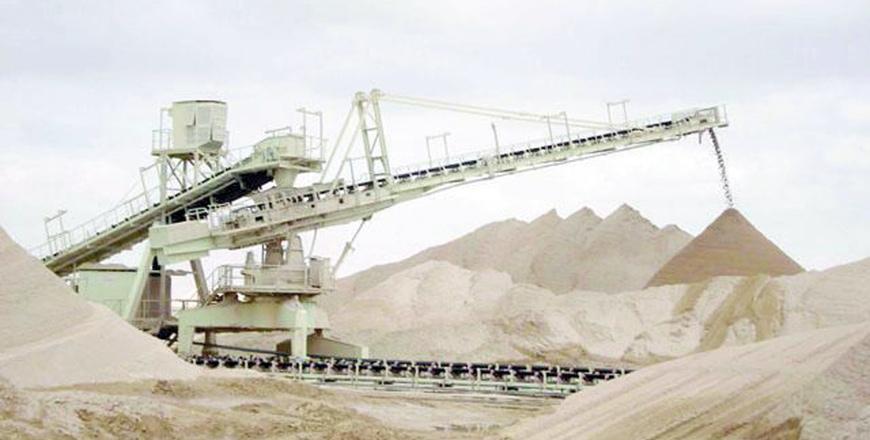- Local News
- Mon-2021-04-19 | 02:31 pm

Nayrouz News Agency :
Minister of Energy and Mineral Resources Hala Zawati on Sunday said that the ministry, after identifying 12 ores of strategic minerals available for investment, is focusing on using unutilised national ores that are used in large and sophisticated industrial fields.
She added that the ministry is currently working on enhancing the added value of the extractive and transformative mining sector, whose revenues amounted to JD2.43 billion in 2019, constituting 7.7 per cent of GDP.
During the same year, the value of the sector’s exports amounted to JD945 million, with an estimated 19 per cent of the Kingdom's total exports.
The ministry continues to encourage the establishment of extractive and transformative industries and implement exploration programmes for mineral resources such as rare natural elements, heavy metals and lithium, Zawati stressed, noting that there are many minerals that still need exploration and evaluation in the Kingdom.
She stressed that the mining sector in Jordan is moving towards positive development and its contribution to GDP is significant, as Jordan is one of the largest producers and exporters of phosphate, potash, bromine, fertilisers and chemical acids in the world, and the only Arab country in potash production.
Zawati pointed to the chalk factory in Karak being classified as the second in the world in terms of quality, with products exported to 100 countries, including Arab countries, all EU countries, west and east African countries, as well as the US, in addition to covering domestic consumption.
She also underlined the importance of the sector in employing local manpower, covering the local market's need for raw materials, providing hard currencies through exports.
Presenting the achievements of the mining sector in the Kingdom for the year 2019, Zawati said that Jordan ranked seventh in the world in potash production which amounted to 2.5 million tonnes, whose revenues reached JD504 million.
Similarly, the Arab Potash Company earned JD152 million in profits in 2019, compared with JD125 million in 2018. The company topped the list of Jordanian exports for the year 2019, with a 1.6 per cent contribution to GDP.
In regard to phosphate production for the year 2019, it reached 9.2 million tonnes, registering the highest amount in five years, with revenues of JD339 million, which accounted for about 1 per cent of the Kingdom’s GDP.
Likewise, the revenues of the Jordan Bromine Company amounted to JD290 million, contributing to GDP by an estimated 0.9 per cent.
Pertaining to the production of fertilisers, she said the production in 2019 amounted to 748,000 tonnes, with revenues of JD145 million, while the amount of acid production amounted to about 1.3 million tonnes, with sales of JD150 million.
As for the cement sector, five factories operate in the Kingdom with a production capacity of 3.2 million tonnes per year, said Zawati, adding that cement revenues reached JD260 million.
In regard to data for the year 2020, Zawati noted that despite the repercussions of the pandemic, the sector continued to operate and export, adding that the companies’ financial data will be issued before the end of April.
In August 2020, the Ministry of Energy launched a set of investment opportunities in the mining sector and announced the most important ores available for investment on its official website.
In relation to the legislative aspect, the ministry has recently announced projects for the exploration of petroleum, oil shale, coal and strategic minerals, which aim to stimulate commercial investment.









